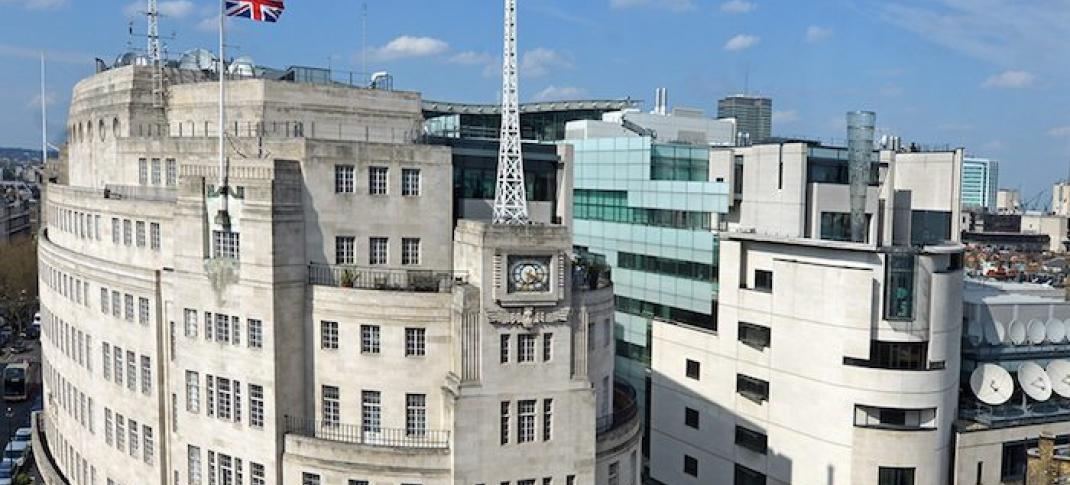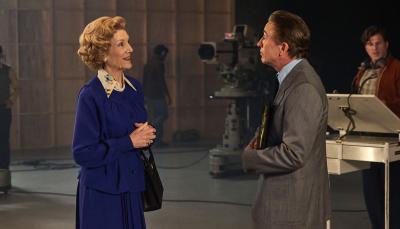Is Aunty Beeb in Trouble?

In late January, British culture secretary Nadine Dorries announced that the BBC License Fee would be frozen at £159 for the next two years. The statement, made in the tabloid (and right-wing) The Daily Mail, was suspected of having been made on a Sunday to distract the public from Boris Johnson's blunders and followed almost two years of negotiation between the BBC and the government. Dorries tweeted: "This licence fee announcement will be the last. The days of the elderly being threatened with prison sentences and bailiffs knocking on doors are over. It's time now to discuss and debate new ways of funding, supporting, and selling great British content."
If you really think your government can win back the public by tossing out a panicky weekend threat to the BBC, then you under-estimate the level of support, admiration, and respect the public has for it. — Armando Iannucci
The Tories presented the proposal officially shortly after to Parliament and in a watered-down version, suggesting there was room for discussion. Currently, any household, business, or organization watching content on a television or digital device must pay the yearly license fee. Last year, for the first time, viewers over 75 had to pay; the government has offered a waiver in the future for this age group, which will not be automatic but must be applied for.
The BBC quickly responded, pointing out that if the license fee does not keep track with inflation, there will be a £285 million deficit by the end of that two-year period. Cuts will have to be made in daytime programming and news services, and channels may be merged. The government is very keen to look at alternative funding methods, whatever those might be, with a subscription model much in favor among Tories.
BBC Chief Tim Davie commented: "Once you're trying to serve a subscription base, it is a completely different situation because suddenly, you are there to make a profit and make a return to a specific audience. The debate is more centred around do we want a universal public service media organisation at the heart of our creative economy, which has served us incredibly well. If we want that, we have to support a publicly backed and not a fully commercialised BBC."
The BBC is something the whole world admires with envy. It is entirely appropriate that the insecure, spittle-flecked nut jobs of this government want to destroy it. — Hugh Grant
Ironically, this year marks the BBC's 100th birthday. The organization started with its first broadcast in 1920 under the auspices of the General Post Office. The decision was made not to follow the example of, for instance, the United States, to issue discrete licenses to radio stations, but instead to bring them together under one entity. The British Broadcasting Company gave its first broadcast in December 1922, financed by the sale of radio licenses to the public (The U.K. abolished radio-only licenses in 1971).
It became the British Broadcasting Corporation in 1927. Even now, the BBC is regulated by Ofcom (nothing to do with Gilead, it's the Office of Communications, a broadcasting, telecommunications, and postal regulatory body). The BBC World Service (known initially as the Empire Service) launched in 1932, and experiments with television began in 1929. The BBC is governed by a ten-year Royal Charter, which expires in 2027. The BBC has ten national TV channels, a streamer (iPlayer), ten national radio stations, 40 local radio stations, and produces regional TV and radio programs. You can read more about the incredible services offered in the UK, including local, national, and digital content on their site.
BBC Studios, the BBC's most extensive commercial distributor, brought in £1.25 billion in the 2020/2021 fiscal year in exports abroad (including to PBS, Netflix, Amazon Prime, and other streaming and broadcast services worldwide). Funding problems, debates about the content, and changing technology have always been the BBC's challenges. The current funding difficulties will likely result in a model of fewer, bigger, and better shows, with an eye to exports. But the BBC weathered a license fee freeze from 2010–2016 and has never really recovered from the personnel losses of that period. Producers will likely cut daytime programming first. Channels, including those that air regional news, may close or combine.
And yes, in general, the British love the BBC but are also highly critical of its services and programs (there was almost a revolt over the Line of Duty finale). Audiences are not afraid to voice their opinions and outrage. BBC Channel 4 made this delightful video of viewer complaints (above), with the actors/presenters themselves participating.
Sadly it looks as though the British public will experience the significant impact of the shortfall. Most of the export material we see is the best the BBC offers, and we hope that standard continues. It's sad that this decision follows on from the amazing job the BBC did on providing new content during COVID as well.
What do you think? Sound off in the comments.



